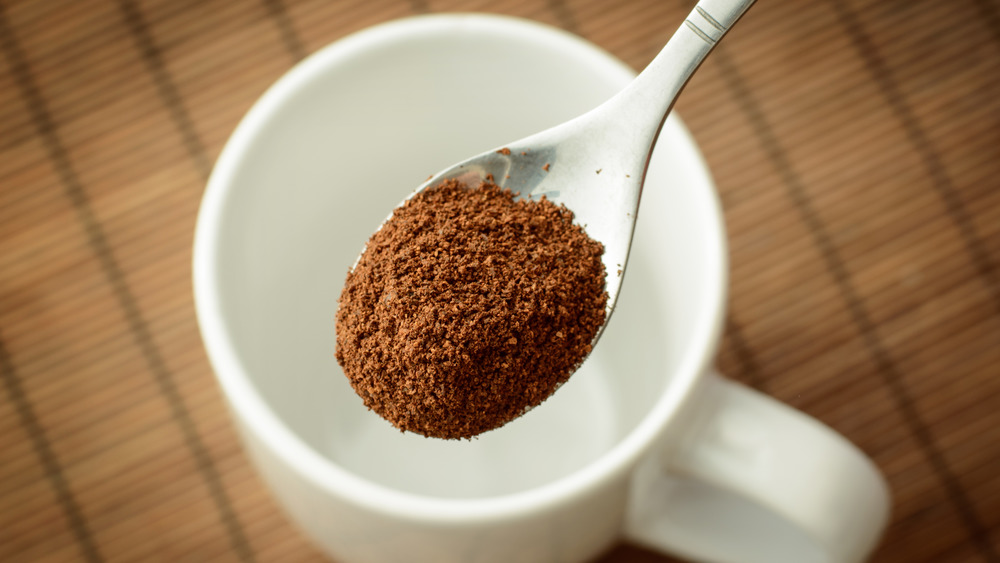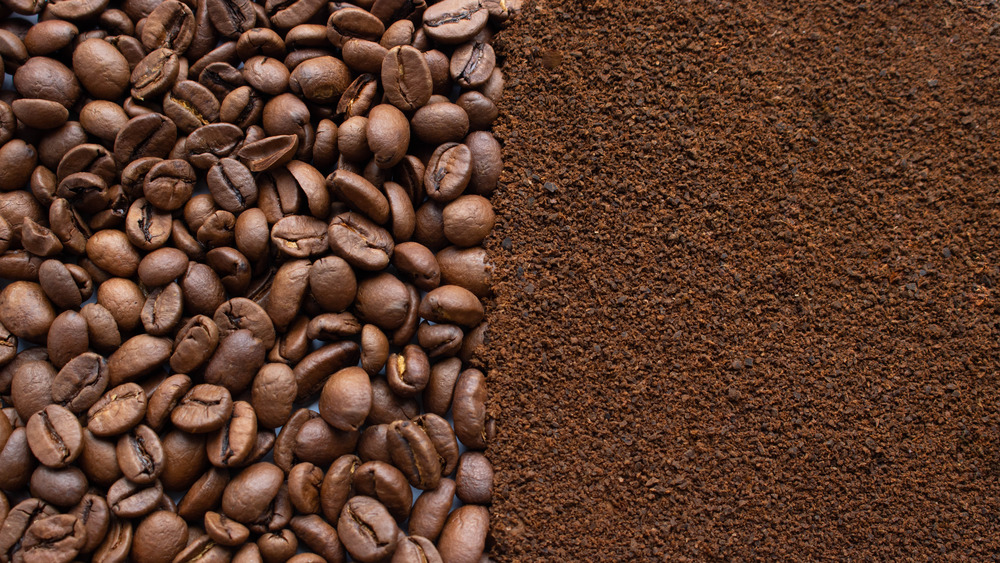Read This Before Drinking Instant Coffee
The thought (not to mention the taste) of instant coffee evokes mixed reactions. In the US and much of western Europe, it's looked upon as the lowly, second-rate version of its more prestigious cousin: fresh-brewed coffee. But Australia, parts of Latin America, and much of Asia prefer instant coffee (via TIME). What gives?
Instant coffee started to become mass-produced in the early 1900s, but it wasn't until World Wars One and Two that it gained in popularity, since hauling coffee makers to the battlefield was not a realistic option. After the wars, instead of waning, popularity grew.
Mark Pendergast, author of Uncommon Grounds and Beyond Fair Trade, says "After World War II, America became obsessed with technologically-advanced methods of getting things quickly, like TV dinners and canned foods. Instant coffee was a part of that wave." (Via Fox News).
Instant coffee is, indeed, 'real' coffee. It's produced by roasting whole coffee beans, then grinding and brewing them. The coffee (or coffee concentrate) is then dehydrated either by spraying the coffee into very hot air, or by freeze-drying it, leaving water-soluble granules that dissolve almost instantly in hot water, hence the name (via Huff Post).
Instant coffee is fast and convenient
One area of concern with instant coffee is a potentially harmful chemical called acrylamide, which can accumulate in the body, causing nervous system dysfunction and increased cancer risk. Acrylamide forms when coffee beans are roasted, and instant coffee can contain twice the amount of acrylamide as fresh-brewed coffee. Thankfully, a 2015 report by the European Food Safety Authority concluded that the amount of acrylamide people get from their diets, even when drinking instant coffee regularly, isn't enough to be a serious health problem (via LIVESTRONG).
The health benefits associated with regular coffee apply to drinking instant coffee, too. So why the bad rap? The main trouble it causes for the world's coffee connoisseurs is that, in spite of major advances in technology, it's been an impossible challenge to rival the depth and complexity of flavor of good, old fresh-brewed coffee. Coffee Review editor Kenneth Davids puts it this way: "The instant-coffee people have been phenomenally inventive in trying to extract the aromatics in brewing and trying to put it back in the coffee. [But] it's never going to be as good as a top-end, micro-lot coffee from a great roaster, brewed carefully."
That being said, its concentrated flavor is ideal for use in cooking and baking, and it's still a great option when convenience or speed is key.


